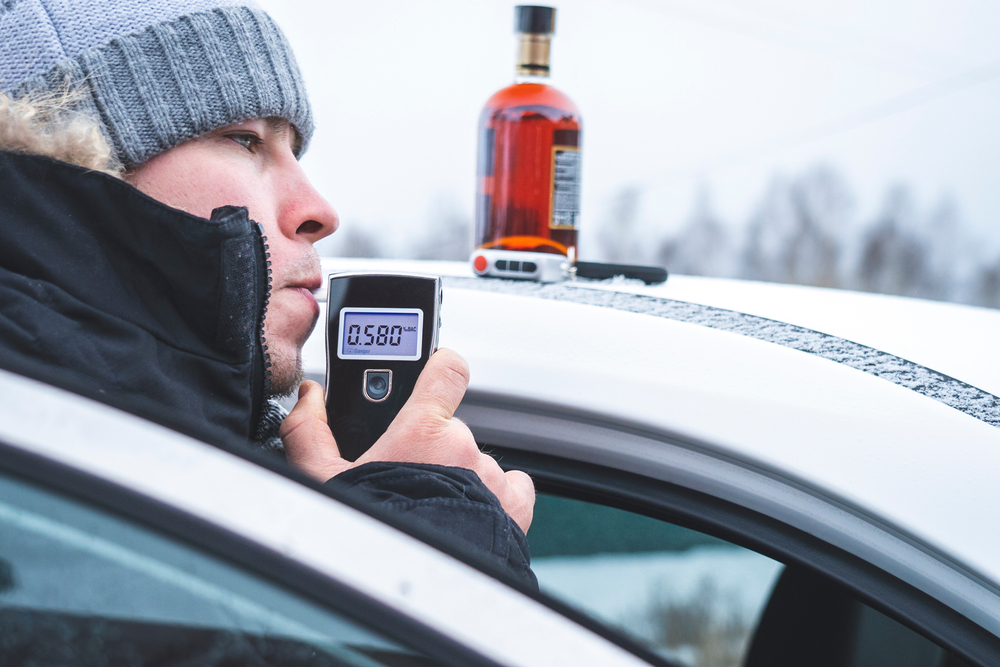
Have you been pulled over for drinking and driving and need to know what BAC is and how law enforcement determines it? Blood alcohol concentration (BAC) refers to the level of alcohol present in an individual’s bloodstream, and various methods can be employed to assess this alcohol level, including breath, blood, urine, or saliva tests.
Breath tests are the most frequently used by law enforcement in Dallas. However, some factors could prevent you from giving an accurate reading. A Dallas DWI lawyer can help explain how BAC is determined and what evidence you can use to refute the readings.
Why is a Blood Alcohol Content Level Significant?
Upon ingestion, alcohol swiftly enters the bloodstream and impacts all bodily organs, including the brain. As intoxication escalates, brain functions start to diminish, leading to potential adverse outcomes. If you have been charged with a DUI or DWI in Texas, speaking with a Dallas criminal defense lawyer is a viable option to avoid receiving the harshest penalty.
What Influences an Individual’s Blood Alcohol Level?
Various factors contribute to how BAC is determined. Key factors include gender, body weight, quantity of standard drinks consumed, and the duration over which the drinks were ingested. Additional factors that play a role include physical health, dietary intake, sleep patterns, and medication usage.
How is BAC Determined?
Blood Alcohol Concentration (BAC) is typically determined through various methods, including:
- Breathalyzer Test: One of the most common methods, a breathalyzer device measures the alcohol content in a person’s breath to estimate their BAC level.
- Blood Test: A blood sample is taken and analyzed in a laboratory to directly measure the alcohol concentration in the bloodstream, providing an accurate BAC reading.
- Urine Test: While less common, a urine test can also be used to estimate BAC levels by detecting alcohol metabolites in the urine.
- Field Sobriety Tests: These tests, such as the walk-and-turn or one-leg stand, are used by law enforcement officers to assess a person’s coordination and cognitive function, which can indicate impairment due to alcohol.
- Observation of Symptoms: Law enforcement officers may also consider physical symptoms of intoxication, such as slurred speech, impaired motor skills, and erratic behavior, to assess potential impairment.
What Constitutes a Standard Drink?
As per the National Institute on Alcohol Abuse and Alcoholism (NIAAA), a standard drink contains approximately 14 grams of pure alcohol (around 0.6 fluid ounces or 1.2 tablespoons).

How Many Drinks Can You Have Before Being Considered Legally Drunk?
The number of drinks it takes to reach a state of legal intoxication, or being “legally drunk,” can vary depending on several factors, including a person’s weight, metabolism, tolerance, and the alcohol content of the drinks consumed.
Therefore, calculating the exact number of drinks needed to determine a specific BAC level is challenging. As a general guideline, it is commonly estimated that one standard drink increases a person’s BAC by approximately 0.02%.
A standard drink is typically defined as:
- 12 ounces (355 milliliters) of regular beer, which is usually around five % alcohol by volume (ABV)
- five ounces (148 milliliters) of wine, which is typically around 12% ABV
- 1.5 ounces (44 milliliters) of distilled spirits or liquor, such as vodka, whiskey, or rum, which is typically around 40% ABV (80 proof)
Based on this estimation, consuming four to five standard drinks within a relatively short period could result in a BAC level of 0.08% or higher, which is the legal limit in Texas.

Are There Any Foods, Medications, or Medical Conditions that Cause a False BAC Level?
Yes, certain foods, medications, and medical conditions can potentially cause a false BAC level when using a breathalyzer test. While these factors can affect breathalyzer results, they may not necessarily result in a false BAC reading in all cases.
Foods and Beverages
- Mouthwash: Some mouthwashes contain alcohol, which can lead to a temporary increase in breath alcohol levels.
- Fermented Foods: Consuming certain fermented foods, such as bread, ripe fruits, and vinegar, can potentially produce trace amounts of alcohol in the mouth, leading to a false positive reading.
- Yeast or Sugar-Rich Foods: Consuming foods or drinks that contain yeast or high levels of sugar can produce ethanol in the mouth, leading to an elevated breath alcohol reading.
Medications
- Over-the-Counter Medications: Certain over-the-counter medications, such as cough syrups, cold medicines, and mouthwashes, may contain alcohol or substances that can interfere with breathalyzer results.
- Prescription Medications: Some prescription medications, including certain antihistamines, anti-anxiety medications, and pain medications, can potentially affect breathalyzer readings.
Medical Conditions
- Gastrointestinal Issues: Medical conditions affecting the gastrointestinal system, such as acid reflux, GERD (gastroesophageal reflux disease), or stomach ulcers, can cause alcohol from the stomach to be regurgitated into the mouth, leading to a false positive BAC reading.
- Diabetes: People with diabetes may have elevated levels of acetone in their breath, which can be mistakenly detected as alcohol by a breathalyzer.
- Ketosis: Ketosis, a metabolic state often associated with low-carbohydrate diets or fasting, can produce acetone in the breath, potentially leading to a false positive reading.
What Are the Legal Consequences of Having a High BAC?
If your BAC is determined to be extremely high, you will be charged with DWI, with penalties increasing if your BAC is 0.15 % or above. Potential repercussions include hefty fines, which escalate with higher BAC levels and repeat offenses, as well as possible felony charges for severe cases, such as injury or death.
Additionally, you may face an automatic suspension of your driving privileges, often starting at 90 days. Jail time is also a possibility, depending on the severity of the offense and any prior convictions. First-time offenders might qualify for probation, which usually includes mandatory alcohol education or treatment programs.
Lastly, a DWI conviction can result in increased insurance premiums or difficulties in obtaining coverage. Given the complexities and potential consequences of a high BAC charge, it’s crucial to seek legal representation. Contact a Dallas DUI attorney today at the Law Offices of Randall B. Isenberg to discuss your case and ensure your rights are protected.










